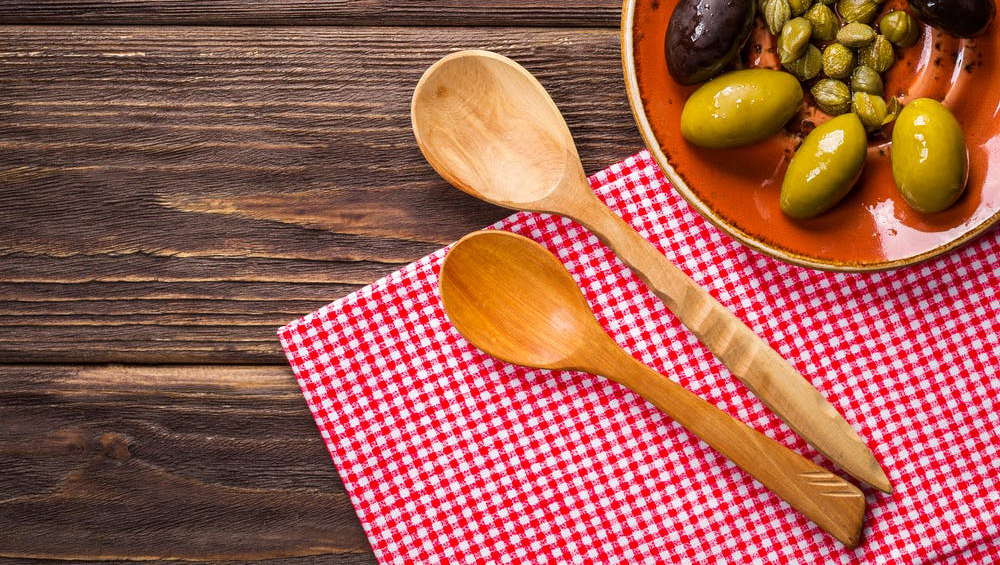Cooking with Wooden Spoons

Why do certain recipes stipulate the use of a wooden spoon versus a metal spoon? There are two main reasons why wooden spoons are favored in some recipes: the first is mechanical and the second is chemical in nature.
Wood is Gentle
A wooden spoon is smooth, round, and relatively soft compared to a metal spoon. This shape and texture make it more comfortable to hold, especially when slight pressure is needed to mix certain ingredients together. When blending ingredients, a wooden spoon tends to push the ingredients together. Contrast this with a metal spoon that cuts through the mixture and can ultimately have an affect on the end result.
A wooden spoon is ideal when you don’t want to overmix your ingredients such as folding in egg whites or adding flours to creamed mixtures. Wooden spoons are also preferred for making sauces because they will not transfer heat the way a metal spoon does, which can cause subtle temperature changes that could alter the outcome of your sauce. This is especially true for sauces that tend to curdle easily such as hollandaise.
Wood is Non-reactive
The second reason for using wood spoons has to do with chemical reactions. Metal spoons can react with certain ingredients such as those that are highly acidic resulting in a slightly metallic taste to your dish. By contrast, wooden spoons are non-reactive and non-abrasive so they won’t scratch your pots or pans either.
Keep a few wooden spoons on hand just for these types of cooking tasks as they are relatively inexpensive and might make a real difference as to how a recipe turns out.
Taking Care of Wooden Spoons
To prevent your spoons from becoming dried out and cracked, hand wash them instead of using a dishwasher; the harsh detergent and high heat will ruin your spoons after a few cycles . Sometimes wooden spoons develop a “fuzzy feeling” after washing. If this occurs, simply buff lightly with a scotch pad or a fine piece of sandpaper. This is simply the wood grains reacting to water. A little mineral oil or beeswax applied periodically to your spoons can keep them from drying out and cracking. Happy Cooking!

Wooden Spoon Bonus Tips
- When you put a pot of water with food on to boil, (like pasta or potatoes) put a wooden spoon over the top of the pot. If it starts to boil over, the spoon will pop the bubbles and keep it from boiling over as quickly, which will give you more time to hurry over and turn the heat down. This could warp a wooden spoon, so do it with an older one you’re not too attached to.
- Don’t leave your wooden spoons in simmering pots so they won’t absorb the flavors and odors of the food.